
Turning mobile networks into lifelines: Early Warnings for All reaches more countries in 2025
In 2025, the International Telecommunication Union (ITU) Telecommunication Development Bureau (BDT) continues to assist countries in strengthening early warning systems to ensure that no one is left unprotected when disaster strikes. This work is carried out under the framework of the United Nations Secretary-General’s Early Warnings for All (EW4All) initiative.
As the lead agency for Pillar 3 of the EW4All initiative, focused on warning dissemination and communication, ITU BDT equips national governments with the skills, technologies, and systems to ensure that life-saving alerts reach everyone instantly, reliably, and accessibly through cell broadcast, multi-channel systems, artificial intelligence-powered tools, and more.
Leveraging its technological expertise, BDT assists countries through EW4All National Consultative Workshops. These workshops serve as the formal launch of the EW4All initiative, reaffirming countries’ commitment to disaster preparedness and resilience. The workshops are convened by national governments and conducted in collaboration with EW4All pillar leads: the UN Office for Disaster Risk Reduction (UNDRR), the World Meteorological Organization (WMO), and the International Federation of Red Cross and Red Crescent Societies (IFRC), along with other partners.
They are followed up by capacity-building sessions on cell broadcast and Common Alerting Protocol, validation ofEW4All national roadmaps, and simulation exercises—all aimed at strengthening national capacities for effective warning dissemination and communication.
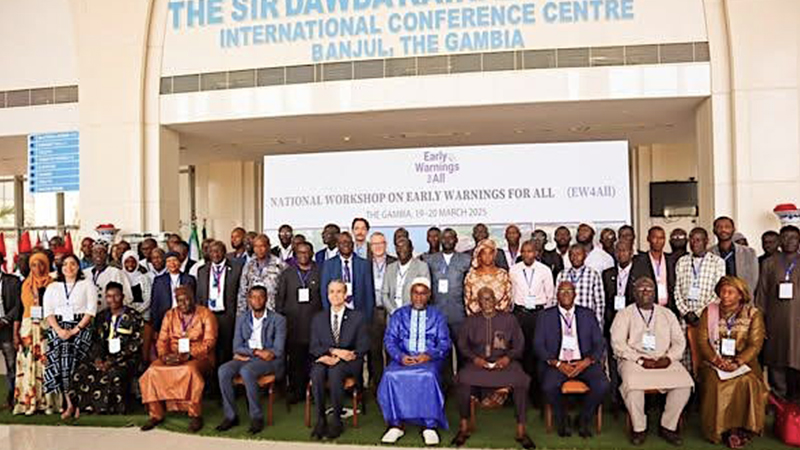
The Gambia
The Department of Water Resources, in collaboration with BDT, WMO, and other key partners, held the EW4All National Consultative Workshop from 19 to 20 March.
The workshop brought together key national and international stakeholders to discuss the country’s approach to implementing EW4All, aiming to strengthen the early-warning system and enhance national disaster preparedness and resilience.
Tanzania
The EW4All National Consultative Workshop, held 19 to 20 March, engaged over 50 stakeholders, including mobile network operators, to assess mobile infrastructure, emergency-alert systems, and regulatory frameworks to support effective deployment of cell broadcast technology.
This workshop was followed by an EW4All Pillar 3 Workshop in April, led by BDT and GSMA. It focused on training the national government on cell broadcast systems (CBS) and worked toward integrating CBS into the national early-warning system.
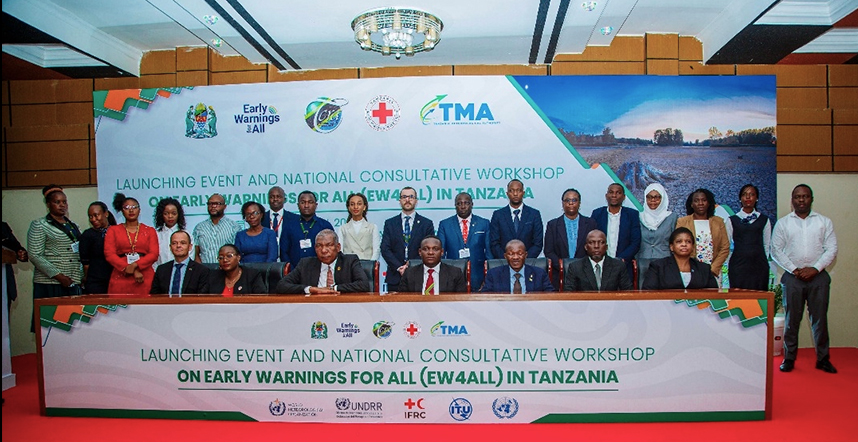
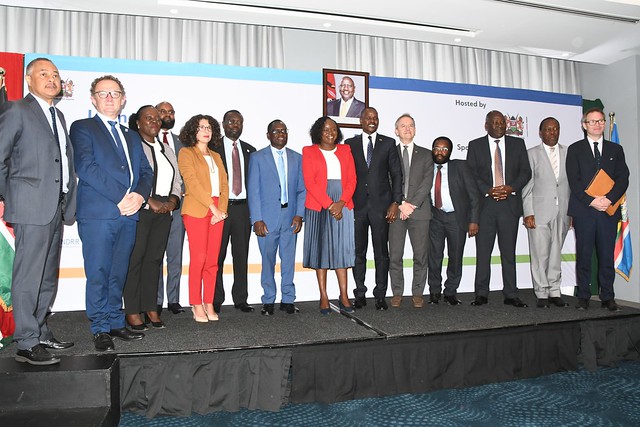
Kenya
The EW4All National Consultative Workshop, held from 2 to 4 April, yielded progress including:
- agreement on a national coordination mechanism to guide the scale-up of early-warning systems
- analysis that identifies national and sub-national policy, technical, financial, and other gaps across the four pillars of EW4All
- agreement on a process for formulating a multi-year, multi-stakeholder EW4All National Roadmap (2025-2027); and
- concrete next steps on the initiative’s implementation.
Belize
The EW4All National Consultative Workshop brought together national and international partners from 5 to 7 May to assess early-warning systems and chart a roadmap for inclusive, multi-hazard preparedness.
The workshop underscored the urgent need for a robust institutional framework that prioritizes the training of professionals and volunteers—essential for strengthening Belize’s multi-hazard early-warning systems (MHEWS) and improving overall operational efficiency.
With strong government leadership and partner support, Belize has taken a giant leap in advancing efforts to build a safer, more resilient future for all communities through EW4All.
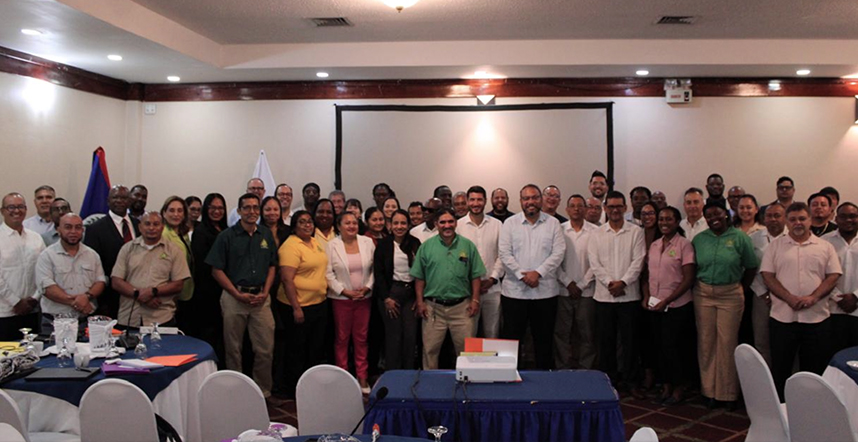
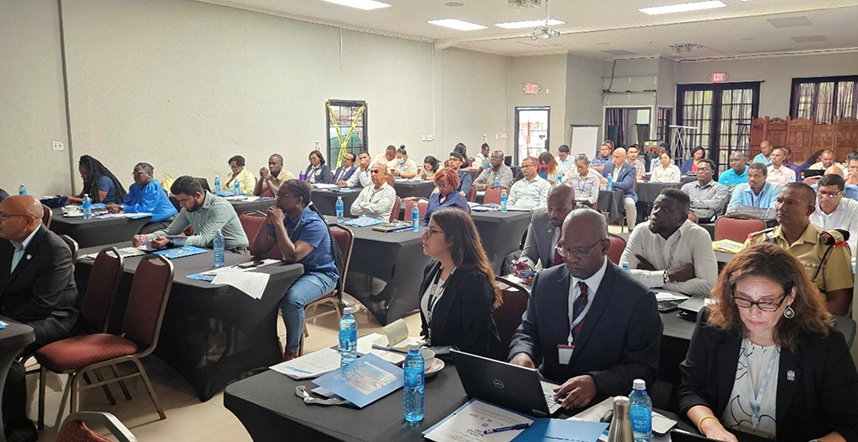
Guyana
From 24 to 26 June, an EW4All National Consultative Workshop showcased progress towards a more effective multi-hazard early-warning system and identified key gaps and opportunities.
The workshop brought together participants from the government, national stakeholders, UN agencies, and international organizations.
Jointly organized by ITU, UNDRR, WMO, and IFRC with the Civil Defence Commission of Guyana, the sessions reviewed critical priorities, mapped key actors, and proposed the creation of a national coordination mechanism to guide MHEWS implementation in the short, medium, and long term. Next steps include developing a comprehensive MHEWS roadmap for Guyana.
The EW4All National Consultation Workshops are equivalent to the initiative’s country roll-out events in 2023 and 2024.
This is an ITU Development #DigitalImpactUnlocked story
About Early Warnings for All
As the lead of the Early Warnings for All initiative’s Pillar 3 on warning dissemination and communication, BDT supports countries in leveraging the power of digital networks and services to reach more people at risk. Recognizing that no single solution can serve all populations, BDT promotes a multi-channel approach tailored to different contexts and communities, using channels like radio, television, social media, sirens, mobile networks, satellite broadcast systems and more. The rapid expansion of mobile networks and services presents unprecedented opportunities for delivering timely warnings directly to those most at risk. BDT works closely with partners and stakeholders from across the public and private sectors to build more resilient and effective early-warning systems.